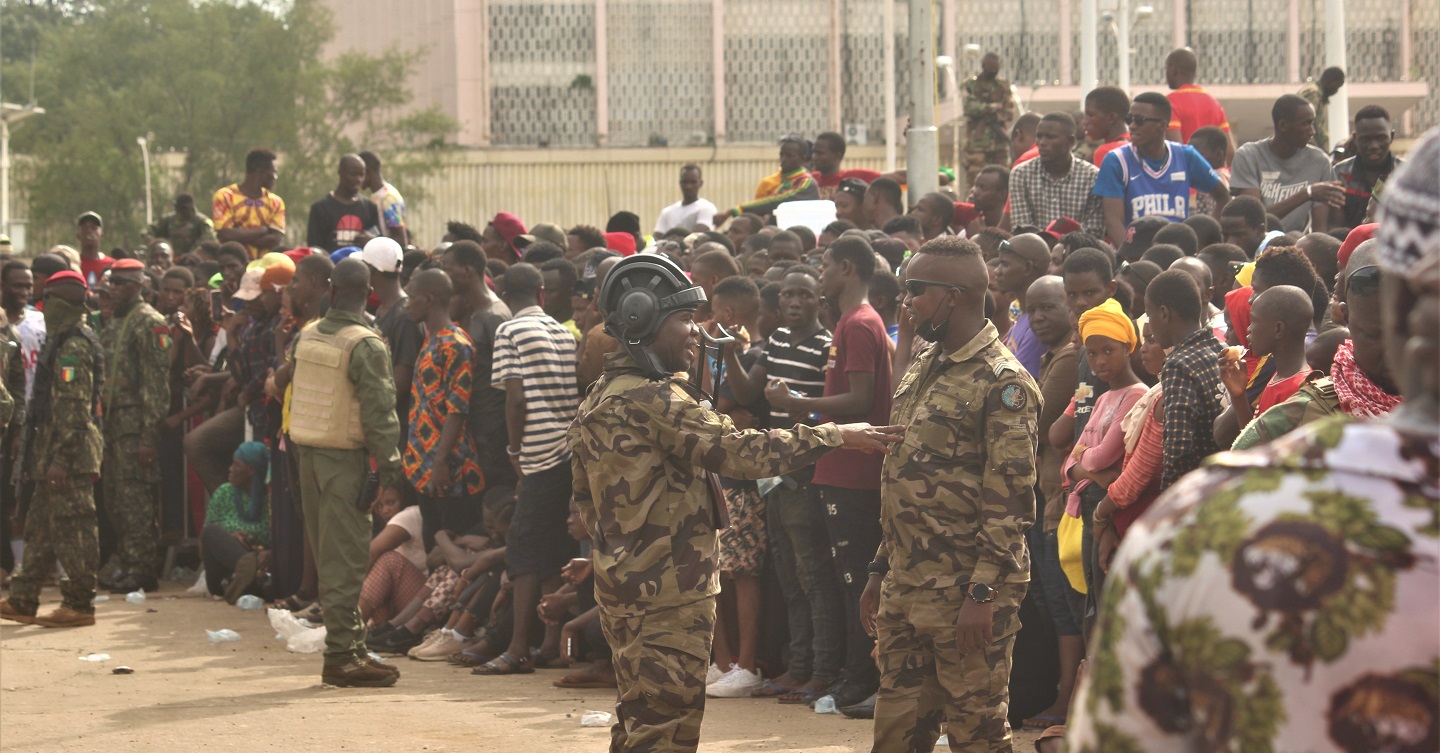
Coup d’etats are sadly a fact of life on the African continent. Since 1950, of the 486 attempted coups in the world, 214 occurred in Africa with 106 of them being successful. Unfortunately countries on the African continent tend to have many of the conditions typically associated with coups. Whether it is poverty, terrorism and insurgencies, or a failure to understand basic human rights there are many factors working against peace. A BETTER PEACE welcomes Daniel Kuwali to the studio to discuss his research to understand and try to prevent coup d’etats in the future. Daniel is a Brigadier General in the Malawi Defense Force where he serves as Chief of Legal Services and Judge Advocate General. He joins podcast editor Ron Granieri to examine the organizations and changes that have to thrive in order to staunch the instability in the region and promote stable democracies.
The challenge is that coup d’etats have a domino effect such that a successful coup significantly increases the probability of subsequent coups in that country and also in the neighboring countries.
Podcast: Download
Daniel Kuwali is a Brigadier General in the Malawi Defense Force where he serves as Chief of Legal Services and Judge Advocate General. He deployed as a Military Observer and Legal Advisor in the then United Nations Mission in the Democratic Republic of the Congo. He is also an Extraordinary Professor of International Law, Center for Human Rights, University of Pretoria; Professor of International Law, Raoul Wallenberg Institute of Human Rights and Humanitarian Law, Lund University; and Adjunct Professor and Founding Executive Director, Center for Strategic Studies, Malawi University of Science and Technology. He is an International Fellow in the Carlisle Scholars Program and a member of the AY22 Resident Course at the U.S. Army War College.
Ron Granieri is an Associate Professor of History at the U.S. Army War College and the Editor of A BETTER PEACE.
The views expressed in this presentation are those of the speakers and do not necessarily reflect those of the U.S. Army War College, U.S. Army, or Department of Defense.
Photo Description: National Council of the Rally for Development (Comité national du rassemblement pour le développement – CNRD) supporters in front of their headquarters the day after the 2021 coup in Guinea.
Photo Credit: Aboubacarkhoraa via Wikimedia Commons





Spot on! Thank you.
Great insights
If corruption is a hallmark of many coups.
And if corruption is, indeed, a common, classic and distinguishing characteristic, trait and feature of capitalism and trade:
“Trade, without doubt, is in its nature a pernicious thing; it brings in that wealth which introduces luxury; it gives rise to fraud and avarice, and extinguishes virtue and simplicity of manners; it depraves a people, and makes way for that corruption which never fails to end in slavery, foreign or domestic. Lycurgus, in the most perfect model of government that was ever framed, did banish it from his commonwealth.”
-Charles Davenant, “Essay upon the probable methods of making a people gainers in the balance of trade,” 1699.
Then, from that such perspective, must not “good governance” (and, accordingly, one’s military, police and intelligence forces?) be devoted to (a) dealing with these such problems of corruption, which are (b) so endemic to such things as capitalism and trade?
(If one’s government were so devoted — to dealing with the problems of corruption, which are so endemic to such things as capitalism and trade — then might there be [a] many less coups and [b] many more happy people/populations?)